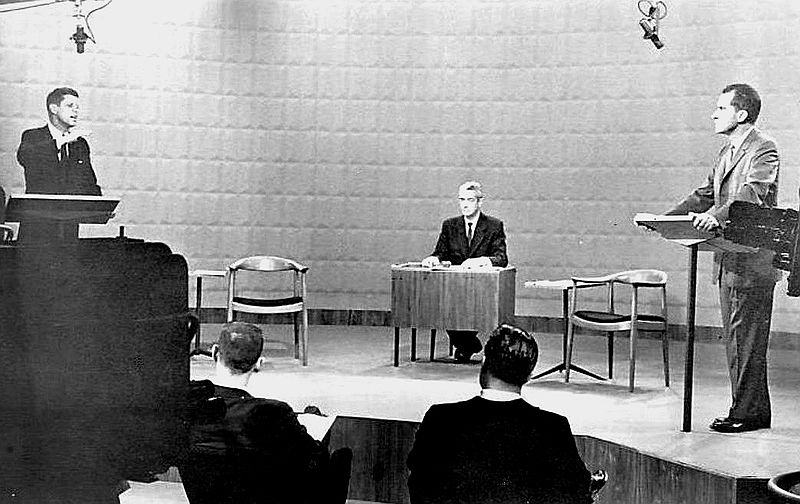
This post is part of the General Conference Odyssey.
The first talk of the first session of the April 1974 session was Guidelines to Carry Forth the Work of God in Cleanliness by President Spencer W. Kimball, and it had some interesting counsel, given that last night I was up later than I would have liked to be in order to watch the first presidential debate. President Kimball “reaffirm[ed] some vital members which concern us.”
One is our civil obligations. We are approaching election time, when we must choose again those persons who will represent us in positions of responsibility in our civil government—federal, state, and local.
I had to look up the 1974 elections. It was a midterm year, following just a few months after President Nixon’s resignation. What struck me the most about the counsel that followed, was how it called on us to be active participants in our nation’s politics. President Kimball quoted the twelfth article of faith:
We believe in being subject to kings, presidents, rulers, and magistrates, in obeying, honoring, and sustaining the law.[ref]Emphasis added.[/ref]
Then he cited from the 1835 “Declaration of Believe regarding Governments and Laws in general,”
We believe that all governments necessarily require civil officers and magistrates to enforce the laws of the same; and that such as will administer the law in equity and justice should be sought for and upheld by the voice of the people if a republic, or the will of the sovereign. [ref]Emphasis added.[/ref]
And then a 1951 First Presidency Statement:
A threat to our unity derives from unseemly personal antagonisms developed in partisan political controversy. The Church, while reserving the right to advocate principles of good government underlying equity, justice, and liberty, the political integrity of officials, and the active participation of its members, and the fulfillment of their obligations in civic affairs, exercises no constraint on the freedom of individuals to make their own choices and affiliations … any man who makes representation to the contrary does so without authority and justification in fact. [ref]Emphasis added.[/ref]
Of course, in addition to the call to active participation in politics, there were two more things that stuck out to me. First: the emphasis on the moral caliber of our representatives. (That’s not as clear in these quotes, but it’s a consistent theme.) Second: the concern about “partisan political controversy.”
People have to make up their minds how to vote this year as in all years, and I’m not going to try and sway anyone directly. I just wanted to remind people of those three basic facts:
- Mormons have an obligation to actively participate.
- We should support representatives of high moral caliber.
- We should avoid “partisan political controversy.”
And, as a final thought, in the end I think it matters a lot less who we vote for than why. And that is because the fabric of society—the individual lives of citizens and their relationships with each other that is based on personal values and culture—will always be more important for the fate of a nation than the particular legal system or leadership that it happens to have at any point in time. Laws can be reformed or changed with a pen stroke. Society goes deeper, is harder to corrupt when it is healthy, and harder to heal when it is broken.
—
Check out the other posts from the General Conference Odyssey this week and join our Facebook group to follow along!
- Love with Rhetorical Jabs by G
- Our Unwearying Savior by Daniel Ortner
- Wake Up! And Taste the True Sweetness of the Everlasting Covenant by Jan Tolman
- Prayerful watching by Marilyn Nielson